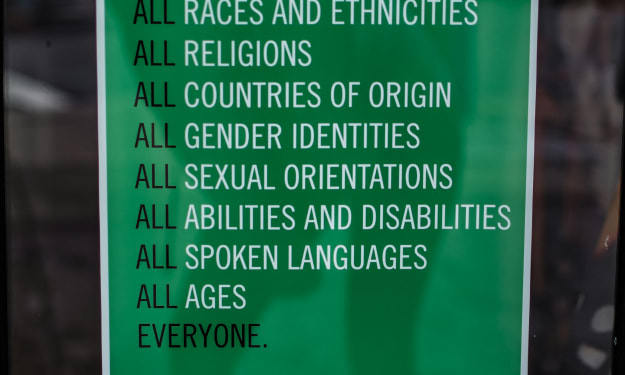
I. Introduction
The Padma awards are among the highest civilian awards in India, established in 1954 to recognize outstanding achievements and contributions of individuals in various fields such as art, literature, science, education, sports, medicine, social work, public affairs, and civil service. These awards are given by the President of India at three levels: Padma Vibhushan, Padma Bhushan, and Padma Shri.
The Padma Vibhushan is the highest of the Padma awards, given for exceptional and distinguished service; Padma Bhushan for distinguished service of high order; and Padma Shri for distinguished service in any field. These awards are considered a great honor and recognition of an individual's contributions to society and the nation.
The awards are given annually on the Republic Day of India, which is celebrated on January 26th. The Padma awards are considered a great honor and recognition of an individual's contributions to society and the nation, and they serve as an inspiration for others to follow their example and make a positive impact in their fields.
II. Categories of Padma awards
The Padma awards are given in various categories, including:
1. Padma Vibhushan: This is the highest of the Padma awards, given for exceptional and distinguished service of the highest order in any field.
2. Padma Bhushan: This award is given for distinguished service of high order in any field.
3. Padma Shri: This is the third-highest Padma award and is given for distinguished service in any field.
4. Padma Bhushan and Padma Shri awards may also be given posthumously.
The categories of Padma awards are not limited to a specific field and are open to individuals from all walks of life, including art, literature, science, education, sports, medicine, social work, public affairs, and civil service. These categories are designed to recognize and honor individuals who have made exceptional contributions to their field and have had a significant impact on society and the nation.
III. Eligibility and Nomination process
Who is eligible for the awards?
Padma awards are open to any civilian, regardless of their nationality, religion, sex, occupation, or position. However, there are some general eligibility criteria that must be met to be considered for a Padma award. These include:
1. The individual must have made a significant contribution to their field, with an impact on society and the nation.
2. The individual should have a good track record of achievements and contributions over a period of time, and not just a one-time achievement.
3. The individual should not have any criminal record or pending criminal cases.
4. Padma Bhushan and Padma Shri awards are not awarded posthumously.
5. Government servants, including those employed with public sector undertakings, are not eligible for Padma awards, except for doctors and scientists.
6. Padma Vibhushan awardees are not eligible for the award again.
7. Padma Bhushan and Padma Shri awardees are not eligible for the award again in the same category.
It is worth noting that these are the general criteria and the selection committee may consider other factors based on the specific category and nominee. Nominations for the Padma awards can be made by any person, including the general public, and are usually submitted through the Ministry of Home Affairs.
How nominations are submitted and processed?
Nominations for Padma awards can be made by any person, including the general public, and are usually submitted through the Ministry of Home Affairs (MHA). The MHA invites nominations for Padma awards every year through an advertisement in leading newspapers and the official website of the MHA.
The process of submitting a nomination includes:
1. Obtaining the nomination form from the MHA website or from the office of the Ministry of Home Affairs.
2. Filling out the nomination form completely and providing all the required information and documents.
3. Submitting the completed nomination form along with the required documents to the MHA, either by post or by hand.
4. Nominations must be submitted before the deadline specified in the advertisement.
Once the nominations are received, the MHA processes them and forwards them to the Padma awards secretariat. The secretariat then screens the nominations and forwards them to the Padma awards committee for further consideration. The committee, which is composed of a group of experts from various fields, reviews the nominations and recommends the awardees to the President of India.
The President makes the final decision and the awards are announced on the Republic Day of India, January 26th. The process of selection is carried out in a confidential manner, and the names of the awardees are announced only after the President has approved them.
IV. Criteria for selection
Factors considered when selecting awardees:
The selection of Padma awardees is a rigorous process that involves a committee of experts from various fields. The committee considers several factors when selecting the awardees, including:
1. The individual's achievements and contributions in their field: The committee evaluates the nominee's work and the impact it has had on society and the nation.
2. The nominee's track record: The committee takes into account the nominee's past achievements and contributions over a period of time, and not just a one-time achievement.
3. The nominee's standing in their field: The nominee should be widely recognized as an expert and leader in their field, with a reputation for excellence.
4. The nominee's impact and influence: The nominee should have made a significant impact and influence on their field, society, and the nation.
5. The nominee's public service and community involvement: The nominee should have a track record of public service and community involvement, beyond their professional achievements.
6. The nominee's integrity and character: The nominee should have a good reputation and have no criminal record or pending criminal cases.
It is worth noting that these are the general factors considered, and the selection committee may consider other factors based on the specific category and nominee. The selection process is conducted in a confidential manner, and the names of the awardees are announced only after the President has approved them.
Role of the selection committee:
The selection committee plays a crucial role in the Padma awards process. The committee is responsible for reviewing the nominations and recommending the awardees to the President of India. The committee is composed of a group of experts from various fields, and it is chaired by the Cabinet Secretary, who is the senior-most civil servant of the Government of India.
The role of the selection committee includes:
1. Reviewing the nominations: The committee reviews the nominations and evaluates the nominee's achievements and contributions in their field, track record, standing in their field, impact and influence, public service and community involvement, and integrity and character.
2. Making recommendations: The committee makes recommendations to the President of India, who has the final say in the selection of the awardees.
3. Maintaining confidentiality: The selection process is conducted in a confidential manner, and the names of the awardees are announced only after the President has approved them.
4. Advising on the eligibility of the nominee: The committee advises on the eligibility of the nominee based on the criteria set by the government.
5. Evaluating the representation of different fields: The committee ensures that the awards are given to individuals from a diverse range of fields, and not just limited to a few fields.
The selection committee plays an important role in ensuring that the Padma awards are given to individuals who have made outstanding contributions to their field and have had a significant impact on society and the nation. The committee's recommendations are based on a thorough evaluation of the nominee's qualifications and contributions, and it helps to ensure that the awards are given to the most deserving individuals.
V. Past notable Padma awardees
Padma awards have been given to many notable individuals over the years, who have made significant contributions in their respective fields. Some of the most notable past recipients of Padma awards include:
1. Dr. B. R. Ambedkar: A social reformer and the chief architect of the Indian Constitution, who was awarded the Padma Bhushan in 1954 and the Bharat Ratna, India's highest civilian award, in 1990.
2. Pandit Ravi Shankar: A sitar player and composer who was awarded the Padma Bhushan in 1967, the Padma Vibhushan in 1981 and the Bharat Ratna in 1999.
3. Mother Teresa: A Catholic nun and missionary who was awarded the Padma Shri in 1962, the Padma Bhushan in 1971 and the Bharat Ratna in 1980 for her humanitarian work among the poor in India.
4. Lata Mangeshkar: A legendary Indian playback singer who was awarded the Padma Bhushan in 1969, the Padma Vibhushan in 1999 and the Bharat Ratna in 2001 for her contributions to Indian music.
5. Sachin Tendulkar: A former Indian cricketer who was awarded the Padma Shri in 1999, the Padma Bhushan in 2008 and the Bharat Ratna in 2014 for his contributions to Indian cricket.
6. Dr. APJ Abdul Kalam: An Indian scientist and politician who was awarded the Padma Bhushan in 1981, the Padma Vibhushan in 1990 and the Bharat Ratna in 1997 for his contributions to the Indian space program.
7. Ratan Tata: an Indian businessman, investor and philanthropist who was awarded the Padma Bhushan in 2000, Padma Vibhushan in 2008 for his contributions to Indian industry and philanthropy
These individuals have made significant contributions in their respective fields and have had a significant impact on society and the nation. Their achievements serve as an inspiration for others to follow their example and make a positive impact in their fields.
VI. Conclusion
The Padma awards are significant in India as they are an official recognition of an individual's contributions to society and the nation. They serve as a way to acknowledge the hard work and dedication of individuals who have made a positive impact in their field and in the country. They are also a way to celebrate the achievements of individuals who have made India proud and inspire others to follow their example and make a positive impact in their fields.
Recognizing and celebrating achievement is important as it encourages individuals to strive for excellence and make a positive impact in their fields. It also serves as a way to acknowledge the contributions of individuals who may not be widely known but have made a significant impact in their field.
Padma awards play an important role in recognizing and celebrating the achievements of individuals who have made a significant impact on society and the nation, and inspire others to strive for excellence and make a positive impact in their fields.





Comments
There are no comments for this story
Be the first to respond and start the conversation.